Of course, you should trust the expertise your marketing, sales, and product development teams have. But they shouldn't be the only ones you consult when making changes to your business. That’s where customer interviews come into the picture.
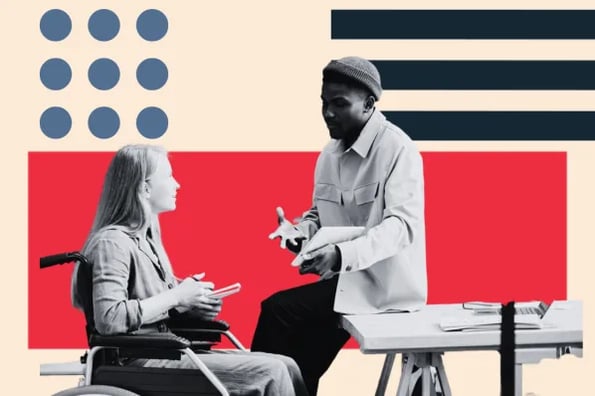
Feedback collected through customer interviews can help you make brilliant decisions and predict how customers will react to a particular change or event. But in order to acquire this information, you must first figure out how to successfully conduct a customer interview.
I’m here to help walk you through what a customer interview is, its benefits, best practices, and tips you should know to conduct them at your organization.
What is a customer interview?
The world's most brilliant minds can develop new product and service ideas, but unless they understand your customers’ needs, their ideas will miss the mark. Customer interviews prevent that from happening.
A customer interview lets you speak to the people who matter most — the folks who buy your product. It's a great way to uncover your customers' challenges, the solutions they're looking for, and how you fare compared to your competitors.
You can conduct customer interviews in two ways. The first is a planned interview. These interviews are scheduled in advance, and you ask customers various questions about their overall brand experience or an individual interaction with your business. These interviews will typically last longer than the second type of interview — which is ad hoc.
Ad hoc interviews are conducted one-on-one, either in person, on the phone, or through video software. While online surveys are convenient, ad hoc interviews let you have a real-time conversation with the customer so that you can ask about specific experiences and events.
How Customer Interviews Help Improve Customer Satisfaction and Product Development
So, how does conducting customer interviews actually benefit your brand? I’m glad you asked. I rounded up some insight from business leaders who have witnessed firsthand how transformative conducting customer interviews can be. Here’s what they have to say.
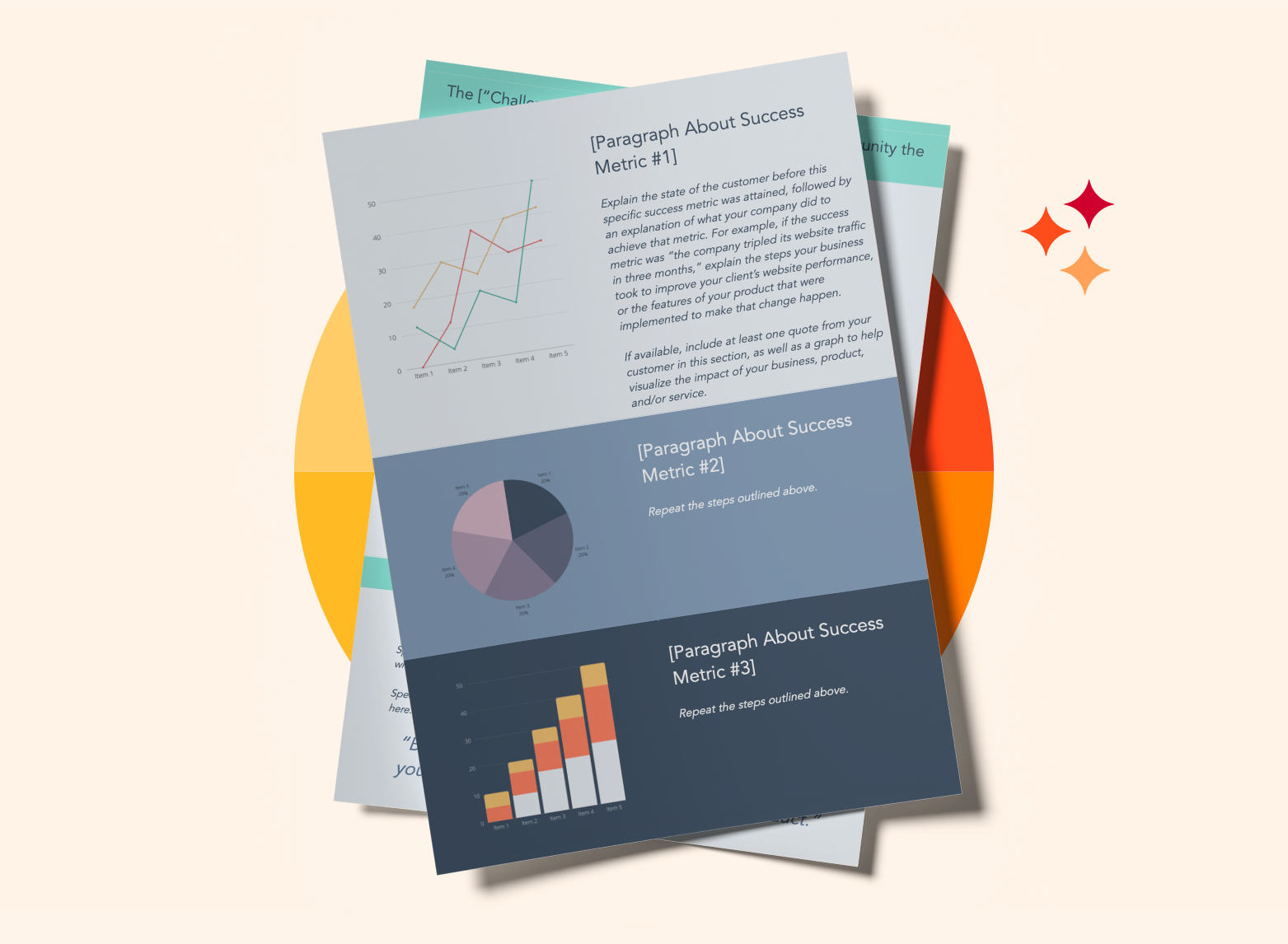
Free Case Study Templates
Showcase your company's success using these three free case study templates.
- Data-Driven Case Study Template
- Product-Specific Case Study Template
- General Case Study Template
- And more!
Joseph Lewin, Director of Growth at Proofpoint Marketing
According to Lewin, customer interviews can significantly impact company messaging. For instance, one client wanted to improve their messaging for ads and sales decks, so Lewin did ten customer interviews, paying attention to the interviewees' language.
“We tested their current ads versus language that came directly from customers,” says Lewin. The outcome? Ad engagement rate jumped from 1.45% to 6.59%
Learnings from customer interviews have also helped Proofpoint develop new service offerings.
“We've struggled to get clients to post on LinkedIn. Through interviews, we learned the biggest challenges were knowing what to post and creating the content,” says Lewin. “From those interviews, we developed a program to facilitate video content creation from our customers' sales teams.”
Lewin says the program led to an enormous improvement in the quality and quantity of content coming from customers who use the new service offering.
Joseph adds that customer interviews have helped “highlight pain points and challenges that are difficult (if not impossible) to uncover without direct conversations with customers.”
For instance, one customer once shared that she struggled to keep up “with all the timelines and tasks [Proofpoint] needed from her team.” Proofpoint fixed this problem by creating “a dashboard for clients with current campaigns, timelines, and checklists for the client to use as an on-demand resource.”
Ben Nebesky, Customer Success Manager at MessageDesk
Nebesky says the greatest benefit of customer interviews is the ability to discover customers’ pain points and how MessageDesk solves them. MessageDesk values this insight above all else because it recognizes it only wins when its customers succeed.
“The more pain points we know we're solving or know how to solve, the more dollars we net in terms of new MRR or retained MRR,” says Nebesky.
Also, insights from customer interviews are fundamental to MessageDesk's product development process.
Nebesky says, “Every time I talk with a customer, I walk away with new insights and a refined understanding of what success looks like for them. We always try to be solution and outcome-oriented for our customers, so getting their feedback is instrumental."
Also, customer interviews help MessageDesk achieve its goal of building a human connection with its clients. In Nebesky’s words, "Our customers always walk away from these interviews with a greater connection to the MessageDesk product and its people.”
Dave Burson, Global Head of Revenue at Canva
In a 2020 interview, Canva's Global Head of Revenue, Dave Burson, shared that one of Canva's biggest growth wins in 2019 was a simple tweak in marketing copy for Canva Pro, Canva's paid product.
This update was inspired by the customer interviews they conducted with a few users. The interviews helped them realize their copy didn’t reflect key reasons customers sign up for Canva Pro.
By interviewing a few users and updating the copy to reflect the users' language, Canva crafted a marketing copy that resonated better. “We saw a considerably large percentage increase in trial conversion off the back of that one copy,” says Burson.
Customer interviews also helped Canva realize its users didn't understand the phrase “Upgrade to Canva Pro for magic resize,” formerly included in the marketing for Canva Pro. By changing the words to “magically resize your design in just a few clicks,” sign-ups for Canva Pro increased.
9 Benefits of Customer Interviews
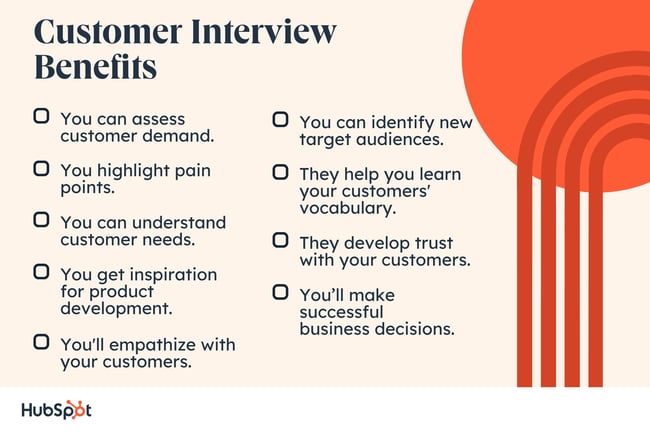
1. You can assess customer demand.
When you're considering a new product or service — or even a new business — you should first identify the demand for it with your customer base. Customer interviews can help you assess customer demand and know if your target audience would be interested in your product, service, feature, or promotion.
2. You highlight customer pain points.
One common use case for customer interviews is understanding the pain points customers experience with your products and services. This helps you improve the pre and post-purchase experience and shows you value long-term customer success.
3. They help you understand customer needs.
Customer interviews are great for uncovering customer needs because you can have an in-depth conversation with your target audience. You can ask about specific experiences and prompt follow-up questions if something is unclear or confusing. The more you understand your customers' needs, the more effective your marketing, sales, and customer service efforts will be.

Free Case Study Templates
Showcase your company's success using these three free case study templates.
- Data-Driven Case Study Template
- Product-Specific Case Study Template
- General Case Study Template
- And more!
4. You get inspiration for product development.
We've all done this at some point as customers. We think of a great idea to improve our favorite brand or product, and we wish we could talk face-to-face with a product developer to bring our idea to life.
Customer interviews present this opportunity for customers to share their ideas with your business. Even if their ideas are far-fetched or implausible, they reveal what customers want from your business and show what you can improve.
5. You'll empathize with your customers.
If you don't work in customer service, interviews are a great way to understand the roadblocks customers experience when interacting with your business. When you're familiar with their problems, it becomes much easier to empathize with them when they share feedback. Not only do you see how the problem impacts the customer, but you also see why it's important for your brand to fix it.
6. You can identify new target audiences.
Some businesses add new products and services that aren't targeted toward their usual consumers. For example, Nerf was originally a brand intended for kids but recently started selling products targeted towards pet owners.
To understand the opportunity in this market, Nerf likely interviewed potential customers to gauge their interest in buying Nerf-branded pet products.
You can do the same in your business to see who would buy your new product, service, or feature. If the response is negative, you can either change your offer or eliminate it altogether to avoid making a costly mistake.
7. They help you learn your customers' vocabulary.
People who work in a customer-facing role usually know their customers' lingo. If you don't, then you might not be as familiar with the language and vocabulary your customers are using.
If you use business jargon or highly technical language, your customers might not understand what you're talking about. Customer interviews are a great chance to learn how your customers speak so you can communicate with them more effectively.
8. They develop trust with your customers.
Customer interviews are useful even if you don't get the most valuable information from the conversation. Regardless of the outcome, conducting customer interviews demonstrates that you value the experience customers have, and you’re committed to improving it for them.
9. Customer feedback helps you make successful business decisions.
Successful organizations always consider customer feedback before making any business decisions. Customer feedback tells you what customers think about your business and how they think you can improve it. Following their lead will only improve your business strategies and create a better customer experience.
Now that I’ve laid out the benefits of customer interviews, I’ll teach you how to conduct them with your customers.
How to Conduct Customer Interviews
-1.webp?width=650&height=433&name=steps%20(2)-1.webp)
1. Understand your goal.
Before you come up with questions, you should first set a goal for your customer interviews. What are you hoping to get out of your time with the customer? Are you developing a new product and want to get feedback from your existing customer base? Or are you looking to better understand the customer journey so you can streamline their experience?
Pro tip: You can go into an interview with multiple goals, but defining them beforehand will save you and your interviewees time and energy.
2. Identify ideal customers.
You should think about the ideal customers you want to speak to. If you have a CRM, you'll have a bank of customer contacts to look through and reach out to. Once you have an example of a good interviewee in mind, use their defining characteristics to comb through your data and find other folks you’d value hearing from, too.
Pro tip: Use your CRM to identify customers who align with your interview objectives. Look for a mix of satisfied and dissatisfied customers to gather diverse perspectives.
3. Approach interviews with an open mind.
It can be very easy to hear negative comments about your product or service and slip into a defensive mode. While you may feel justified in shooting down this feedback, the fact is that customers are sharing how they experienced your company and its products — and you can’t dispute how they feel.
When you're going into these interviews, realize you may hear some comments or feedback you disagree with. Rather than shutting them down and wasting everyone's time, hear them out. You'll always have a few outliers with odd feedback, and those are not the comments you need to be concerned with.
Pro tip: It’s especially important to note recurrent issues that come up repeatedly. That’s where you’ll really make a difference in solving for your customers.

Free Case Study Templates
Showcase your company's success using these three free case study templates.
- Data-Driven Case Study Template
- Product-Specific Case Study Template
- General Case Study Template
- And more!
4. Ask pertinent questions.
As you prepare for interviews, create a list of questions that will help you achieve your overarching goal. Open-ended questions are better than "yes or no" questions because they allow the interviewee to express themselves fully and explore topics you didn’t consider discussing. Also, use follow-up questions to clarify important points — especially when something is unclear or confusing.
Pro tip: When you're preparing for the interview, anticipate how the customer might respond to your questions and what you might ask as a follow-up to get even more information.
5. Provide the option to follow up in the future.
Before you finish the interview, thank the customer for their time and ask if you can contact them in the future with more questions. This keeps the door open to get more information or possibly conduct another interview if needed.
Pro tip: One effective approach you can take is interviewing the customer about a particular problem, and then re-interviewing them after you make an adjustment. That way, you can see if what you did actually worked and resolved their issue. This also creates an ongoing dialogue with the customer, which will strengthen your rapport with them.
6. Analyze the results.
Once you've completed your interviews, the next step is to look for commonalities in your customer feedback. Prioritize the most popular problems first since these impact the most customers at your business.
Pro tip: Analyzing the results is just the beginning — what really matters is fixing the issues mentioned, and in a timely manner. You can even follow up with interviewees and let them know you’ve taken their feedback into consideration, and your team will be enacting changes to rectify the problem. This makes customers who give their time and consideration to your business feel appreciated and heard.
Customer Interview Best Practices
Nuance matters. So, besides what we've discussed, consider following these best practices to conduct successful customer interviews.
Consider doing a mix of one-on-one interviews and focus groups.
Marketing experts like Mark Ritson strongly advocate for focus groups, and for good reason. “They’re a quick and cheap route to useful insights,” says Ritson. However, Ritson also states that they have flaws.
One major flaw is they're prone to bias. Interviewees might say certain things just to look smarter than others. Some interviewees might also say little or stay quiet. Consequently, the opinions of a few people dominate the conversation and distort the result.
The bottom line? If you can, mix and match focus groups and one-on-one interviews. If you have to choose, go with one-on-one.
Ask these five questions.
Marketers often struggle to ask the right questions during customer interviews. Customer Interview expert Louis Grenier recommends asking the following questions.
-
What's the trigger? What first caused you to look for this solution?
-
What's the pain? What's the main barrier to achieving your goal? What did you hate?
-
What's the journey they took? What alternatives did you look for?
-
What can you do now that you couldn’t do before?
-
What do you hate about the industry?
That last question is beneficial because, according to Grenier, few people ask it. Consequently, the responses you receive can help shape your differentiation and positioning strategy.
Don’t ask about the future.
As established earlier, no doctor fills out a prescription without first diagnosing the patient. However, no doctor expects patients to write their own prescriptions either.
The point? It's not your customers' job to know the solution to their problems. It's yours. This clarification is essential because, as Nebesky says, “Customers may say they want one thing, but that may not be what they actually NEED to solve their problem.”
Understand that the purpose of the interview isn't to ask what customers want. It's to diagnose their needs using probing questions. So, if customers request a specific feature or product, probe deeper to uncover the underlying reason for their request. That way, you can provide the appropriate solution. But don’t expect them to supply it — that’s your job.

Free Case Study Templates
Showcase your company's success using these three free case study templates.
- Data-Driven Case Study Template
- Product-Specific Case Study Template
- General Case Study Template
- And more!
Treat feature/product requests as opportunities for interviews.
If your team is small, you might think you don’t have time to fit customer interviews into your schedule, even if you understand the value of it.
In such cases, Michele Hansen, author of Deploy Empathy, recommends you “integrate it into what you’re already doing.” Feature requests give you an opportunity to do this because the customers are already coming to you. So you don’t have to proactively recruit customers for interviews.
When you get feature requests, turn them into a customer interview by asking questions like, “What leads you to want that?” And “What are you currently using to get that done?” These questions help you dive into how the customer thinks and gauge how valuable the request is to them.
Do your homework.
“Learn everything your company knows about the customer before going into your interview,” says Jim Lein, a marketing expert with 20+ years of experience at Oracle. Study them on LinkedIn, too.
This helps build rapport at the beginning of the conversation, ensures your interviewees are comfortable, and makes the interview a friendly conversation rather than an interrogation.
Learn more ways to survey customers with these strategies to obtain customer feedback.
Getting Started with Customer Interviews
As Close.com CEO Steli Efti aptly summarizes, “Whoever understands the customer best wins.” We know you want to win. But to do that, you need to know what your customers want and how they think. Customer interviews are the perfect tool you can use to fill in the gaps and build rapport with the people who matter most: Your customers.
Editor's note: This post was originally published in December 2020 and has been updated for comprehensiveness.

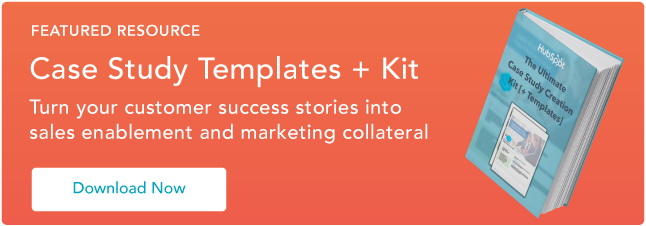
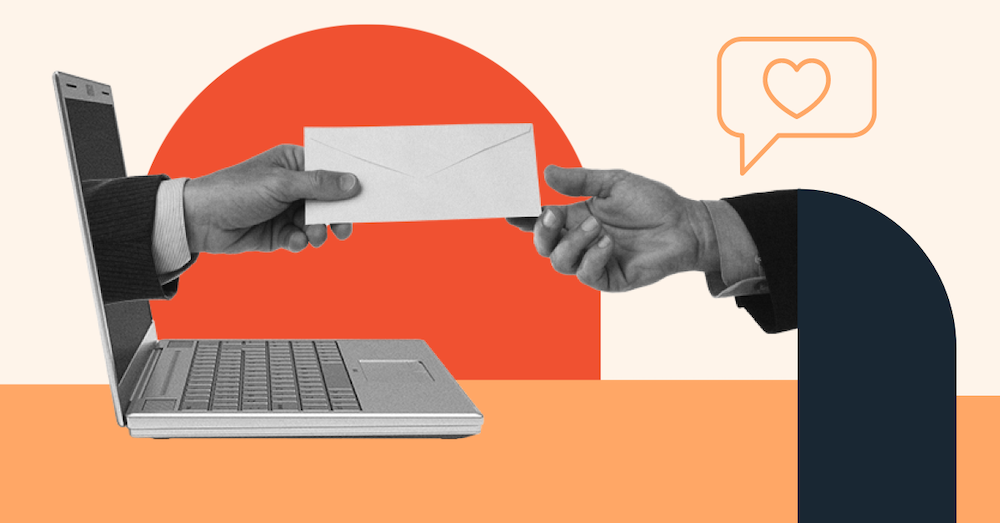
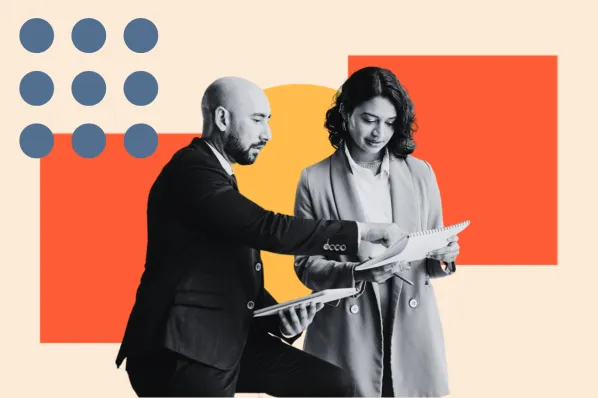

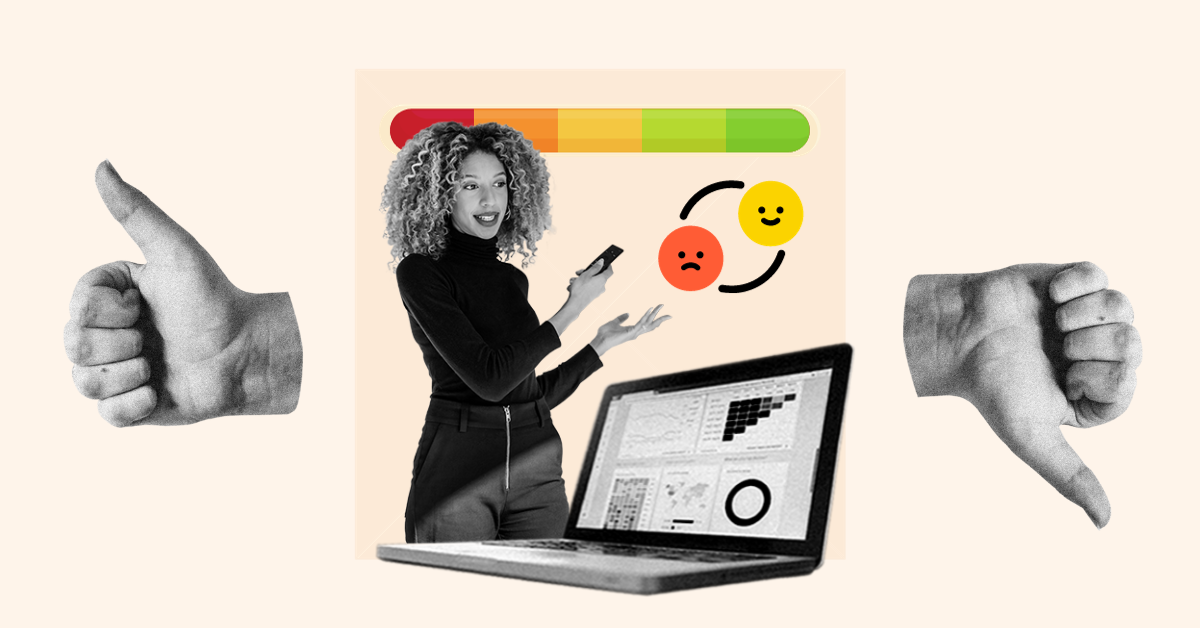



![‘How Did You Hear About Us’ Survey Options: All-In-One Guide [+ Examples]](https://blog.hubspot.com/hubfs/how%20did%20you%20hear%20about%20us_featured.jpg)
![How to Write an Apology Letter to Customers [12 Templates & Examples]](https://blog.hubspot.com/hubfs/apology%20letter%20to%20customer_featured.jpg)
